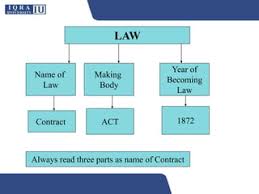Understanding the Pakistani Legal System: A Basic Guide

The establishment of laws serves various purposes. This aids in forming standards and maintaining order in a society or a country. Moreover, laws also cope with disputes and safeguards the rights of every citizen. A person can hire, for instance, a family lawyer in Karachi for the better understanding of such policies and hence fighting for their rights. Here, we will briefly introduce you to the legal system of Pakistan.
Law of Pakistan: The History
In the initial years of Pakistan, there were the British Raj laws. Muhammad Ali Jinnah, who is the founder of this country, dreamt of forming the system as per the Islamic teaching. This notion came into existence in 1956, at the time of the establishment of the first constitution.
The approaching lawmakers valued this vision, and hence, the incorporation of the components of Islamic Sharia Law in the law of Pakistan occurred during the sovereignty of General Muhammad Zia-ul-Haq. Besides, this led to the Federal Shariat Court institution. The law system based on conventional approaches is there in certain Provincially as well as Federally Administered Tribal Areas.
Types of Laws in Pakistan
Human Rights Law
There are rights of every citizen living in Pakistan. The state is accountable for creating them. Many of them exhibit freedom in certain ways. For instance, there is freedom of speech as well as freedom of religion. Besides, citizens have the rights of the liberty of movement and association.
Human rights law also promotes equality among these individuals. There is the absence of the discrimination in public places. Furthermore, there are rights of safety of minorities. The law also prohibits forced labor. There is shelter against retrospective punishment as well.
Criminal Law
Criminal law basically defines any illegal activity. If someone charges a person with criminal behavior, the latter has the access to a criminal defense attorney. Hence, the lawyers carefully move forward by comprehending the cases. There are a wide spectrum of criminal offenses included, such as assault, murder, kidnapping and theft. There is the Pakistan Penal Code, 1860, that describes the punishment of each of such unlawful acts.
Also, there is Criminal Procedure Code, 1898, that puts forth the standards for analysis, trial as well as penalty. The prison system, police and judiciary is at the administrative level for Pakistan’s criminal justice system.
Family Law
For family law, there are specific lawyers. Even there are family courts that deal with family matters and lie under the high court. The examples of such cases encompass custody of the kids as well as marriage. Also, the family lawyers guide you in a proper way regarding policies, documents, like Nadra marriage certificate, and solutions.
Besides, if people in Pakistan desire to seek separation, divorce or want consultation on adoption, they can contact the family lawyers. Currently, Muslim Family Laws Ordinance 1962 is governing the family law in Pakistan.
There are certain other laws as well in this country, including public health law, immigration law, international law, military law, media law, labor law and so on.
Classes of Courts
Superior Judiciary
In the composition of higher or superior judiciary, there are a few courts. For example, there are five High Courts, Supreme Court of Pakistan and Federal Shariat Court. As there are four provinces in Pakistan, each one has a High Court. Also, there is one for the federal capital.
The Constitution of Pakistan has assigned some responsibility to the superior judiciary. It has to preserve, guard and support the constitution. Nevertheless, the judicial systems of Jammu and Kashmir as well as Gilgit-Baltistan are different from the key Pakistani system.
Subordinate Judiciary
Next, there is the lower or subordinate judiciary. It has various specialized courts under it, that cover insurance, terrorism, banking, environment and corruption. Besides, there are criminal and civil district courts.
The West Pakistan Civil Court Ordinance 1962 is accountable for the formation of civil courts. Nonetheless, Criminal Procedure Code 1898 created criminal courts. West Pakistan Land Revenue Act 1967 handles the revenue court. As per a source, there are chances of the establishment of tribunals as well by the government.
Conclusion
Laws are crucial to protect the rights of the citizens. They represent standards and concentrate on the provision of justice to everyone. Pakistan’s law has a rich and interesting history. In the first few years, British Raj laws were dominating this country’s judicial system. Its founder desired to implement the Islamic teachings, which became reality in 1956.
In terms of the types of laws in Pakistan, there are many, however, we elaborated on only three: family law, criminal law and human rights law. Others include immigration law, international law, media law and so on. Human rights law primarily focuses on the freedom rights of the residents of this country, such as freedom of religion. Besides, there are two classes of courts in Pakistan; one is superior judiciary and the other one is subordinate judiciary.


